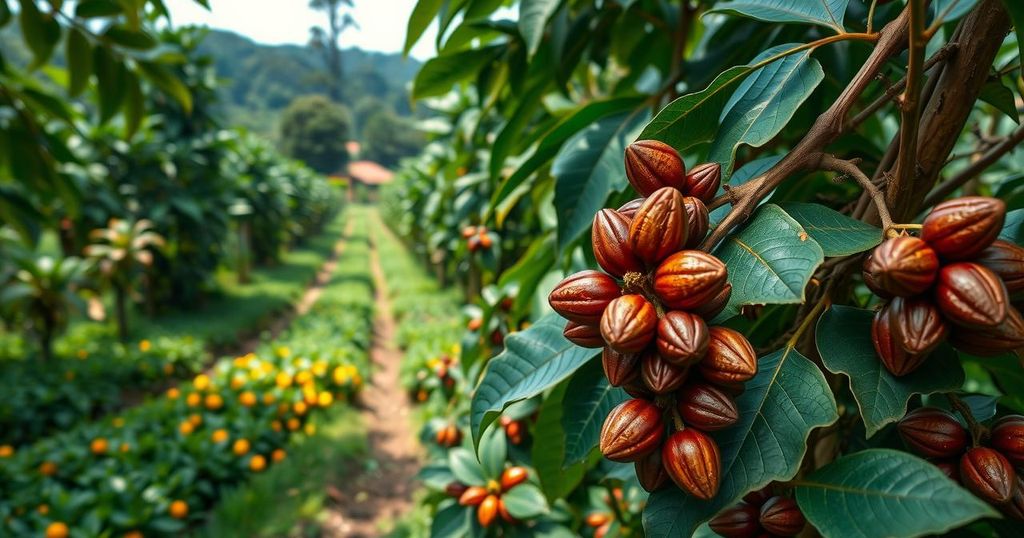Enhancing Cocoa Resilience: The Role of Shade Trees in West Africa’s Agroforestry

A recent study led by scientists at the University of Göttingen reveals the importance of leaf phenology in selecting shade trees for cocoa agroforestry systems in West Africa. The research shows that particular shade trees, especially those that lose their leaves in the dry season, can enhance soil moisture and cocoa productivity. This approach offers guidelines for improving climate resilience in cocoa farming amid changing environmental conditions.
In West Africa, which accounts for 70 percent of the world’s cocoa production, integrating trees and shrubs into cocoa farming through agroforestry is essential for sustainable practices. As climate change introduces challenges such as drought, researchers from the University of Göttingen have investigated the significant impact of leaf phenology—seasonal changes in leaf cycles—on the resilience and productivity of cocoa farming. Their study highlights how shade trees, depending on their leaf cycles, can either support or hinder cocoa yields by affecting soil moisture and microclimate stability. The researchers conducted a thorough two-year field study in Ghana and categorized shade trees into functional groups based on their leaf phenological cycles, discovering that certain species, particularly those that shed leaves entirely during the dry season, can effectively maintain soil moisture during droughts. This research provides clear guidelines for selecting shade trees that bolster climate-resilient cocoa production. Lead authors and scholars emphasized the strategic importance of choosing the right shade trees to safeguard both cocoa productivity and environmental sustainability.
Cocoa farming faces increasing threats from climate change, particularly in regions heavily reliant on cocoa production like West Africa. The introduction of agroforestry systems, where shade trees are integrated into cocoa plantations, offers a potential solution for enhancing resilience against climate-induced challenges. This study is pivotal as it examines the role of shade trees through the lens of leaf phenology, providing insights on how seasonal leaf changes can impact cocoa productivity in varying climatic conditions. The research involved collaboration among several esteemed universities, highlighting the multifaceted approach needed to address agricultural sustainability under shifting climate patterns.
This research underscores the critical role of selecting appropriate shade trees in fostering climate-resilient cocoa production in West Africa. By focusing on leaf phenology, the study offers practical insights for farmers to enhance cocoa yields and improve environmental stability. With ongoing support from funding agencies, such strategies could significantly mitigate the adverse effects of climate change in agriculture, ensuring sustainable cocoa production for the future.
Original Source: www.eurasiareview.com






